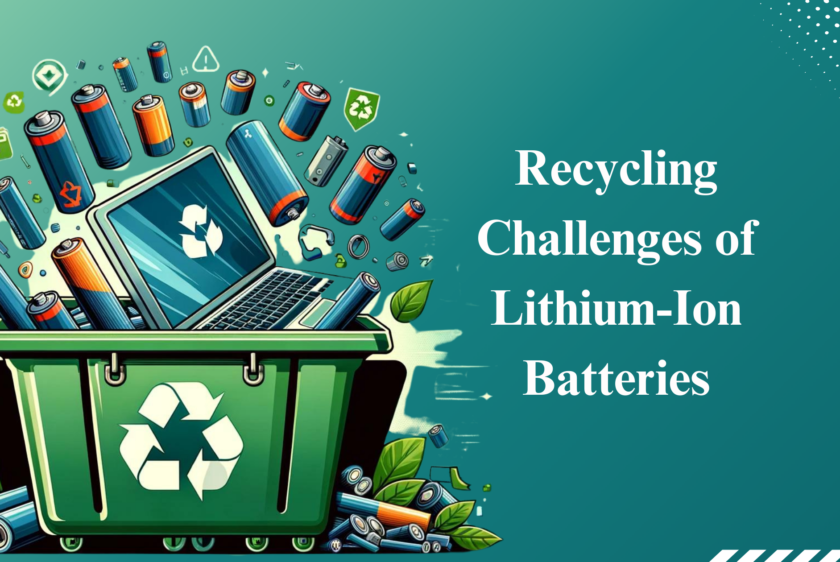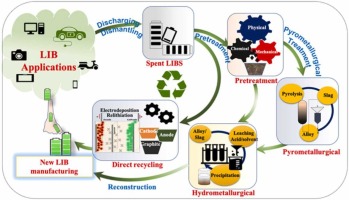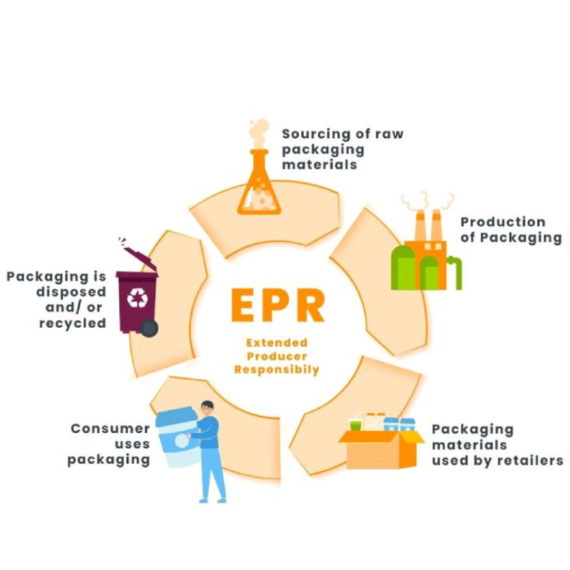
Recycling Challenges of Lithium-Ion Batteries
We’re living in a golden age of gadgets and green energy. Our smartphones keep us connected, laptops fuel our productivity, and electric vehicles are cruising past gas stations. But what about the batteries that power them? Lithium-ion batteries are the real thing that makes all these things possible. As they become more common, we need to figure out how to recycle them properly, as it can recover up to 95% of these materials to reintroduce them into the manufacturing cycle and reduce the need for new mining. In this blog, we will discuss the complexities of recycling these batteries and explore the solutions to overcome the associated challenges.
Why Recycle Lithium-Ion Batteries?
Lithium-ion batteries contain valuable resources like lithium, cobalt, and nickel, which are essential for producing new batteries. Recycling these batteries helps reduce the demand for mining these finite resources, conserves energy, and minimizes environmental impact. Moreover, improper disposal of lithium-ion batteries can lead to hazardous leaks of toxic chemicals, posing risks to human health and the environment.
1. Complex Composition:
Lithium-ion batteries are composed of various materials, such as lithium, cobalt, nickel, graphite, and other metals. Due to their different chemical compositions and physical properties, disassembling and separating these components for recycling is challenging. Additionally, these batteries are constructed with adhesive substances and protective casings that make the disassembly process even more complicated. This complexity often hinders the efficient extraction of valuable materials, as each component type requires a specific recycling method.
2. Safety Concerns:

Lithium-ion batteries pose significant safety risks, especially when damaged or at the end of their life. These batteries contain flammable electrolytes and reactive materials that are prone to igniting or emitting toxic gases when mishandled. The risks include fires, explosions, and potential environmental contamination. The process of storing, transporting, or recycling these batteries must be carefully managed to avoid such dangers. Consequently, recycling facilities must adhere to stringent safety protocols and invest in sophisticated equipment to safely mitigate these risks.
3. Lack of Infrastructure:
The recycling infrastructure for lithium-ion batteries is not as developed as it is for more traditional recyclable materials like paper, plastic, and metals. This gap results in a shortage of specialized recycling facilities and equipment, which is a significant challenge in the recycling process. Furthermore, the absence of standardized recycling procedures and regulations complicates the development of a reliable recycling infrastructure. This deficiency in infrastructure limits the ability to manage the increasing volume of end-of-life lithium-ion batteries, thus stalling the progress of establishing a sustainable recycling ecosystem.
4. Economic Viability:
Recycling lithium-ion batteries is economically challenging as the associated costs often exceed the extracted materials’ financial value. Factors contributing to this include fluctuating metal prices, the inefficiency of existing recycling technologies, and high operational costs. These issues undermine the economic attractiveness of recycling these batteries for recyclers and investors alike. The lack of profitable business models and financial incentives further discourages investment in recycling infrastructure and technology, slowing advancement towards a sustainable circular economy for lithium-ion batteries.
5. Environmental Impact:
The improper disposal of lithium-ion batteries can lead to significant environmental issues, including soil and water contamination, habitat destruction, and public health risks. When these batteries are discarded in landfills or incinerated, they can leach toxic chemicals into the surrounding environment, posing long-term ecological threats. Furthermore, the extraction and processing of the raw materials used in lithium-ion batteries also have detrimental environmental effects. These include habitat disruption, air and water pollution, and increased greenhouse gas emissions. Without effective recycling practices, the environmental consequences of using and disposing of lithium-ion batteries will continue to escalate, further harming the planet.
Potential Solutions For Recycling Challenges Of Lithium Batteries
Advanced Recycling Technologies:
Developing and implementing advanced recycling technologies can significantly improve the efficiency and effectiveness of lithium-ion battery recycling. These technologies could focus on better separation techniques to cleanly recover valuable materials like lithium, cobalt, and nickel. For example, innovations such as automated disassembly systems and advanced chemical treatment processes can optimize material recovery and minimize environmental impact. By enhancing the technology used in the recycling process, we can reduce operational costs and increase the economic viability of battery recycling.
Extended Producer Responsibility (EPR):

Extended Producer Responsibility (EPR) programs require battery manufacturers to take responsibility for the entire lifecycle of their products, including disposal and recycling. Implementing EPR can incentivize manufacturers to design batteries that are easier to recycle and may include financial or physical responsibility for collecting and processing end-of-life products. This approach can help distribute the economic burden of recycling and encourage manufacturers to innovate in design for recyclability.
Research and Development:
Investing in research and development is crucial for overcoming the technological and economic barriers to lithium-ion battery recycling. This can involve developing new methods to handle and process batteries more safely and efficiently, as well as finding economically viable methods to extract and reuse materials. Funding and supporting R&D can lead to breakthroughs that make recycling more feasible and less costly, thereby promoting a sustainable lifecycle for battery materials.
Public Awareness and Education:
Enhancing public awareness and education about the importance of recycling lithium-ion batteries can significantly improve recycling rates. Educational campaigns can inform consumers and businesses about the proper disposal methods and the environmental benefits of recycling these batteries. By increasing consumer participation in recycling programs, the volume of batteries collected for recycling can increase, thereby supporting a more robust recycling ecosystem.
Government Support:
Governmental policies and support can provide a critical framework for establishing a successful recycling infrastructure. This can include subsidies for recycling technologies, financial incentives for recycling facilities, and strict regulations that mandate recycling practices. Additionally, governments can facilitate international cooperation to standardize recycling processes and promote global best practices. Support from public agencies can help overcome the initial economic challenges of setting up recycling operations and fostering a competitive recycling market.
Final Outcome
Although the challenges of recycling lithium-ion batteries are substantial, they are not impossible to overcome. By working together and focusing on innovation, we can create sustainable solutions that guarantee the proper handling of battery waste. By emphasizing the development of recycling infrastructure, encouraging technological progress, and raising awareness among consumers, we can strive towards a future where the environmental effects of lithium-ion batteries are reduced. Let’s seize this opportunity to construct a more sustainable world for future generations.
Read Our More Blogs:
Importance of Responsible IT Asset Disposition (ITAD) for Businesses
What Are the Environmental Benefits of Refurbishing Electronics?







